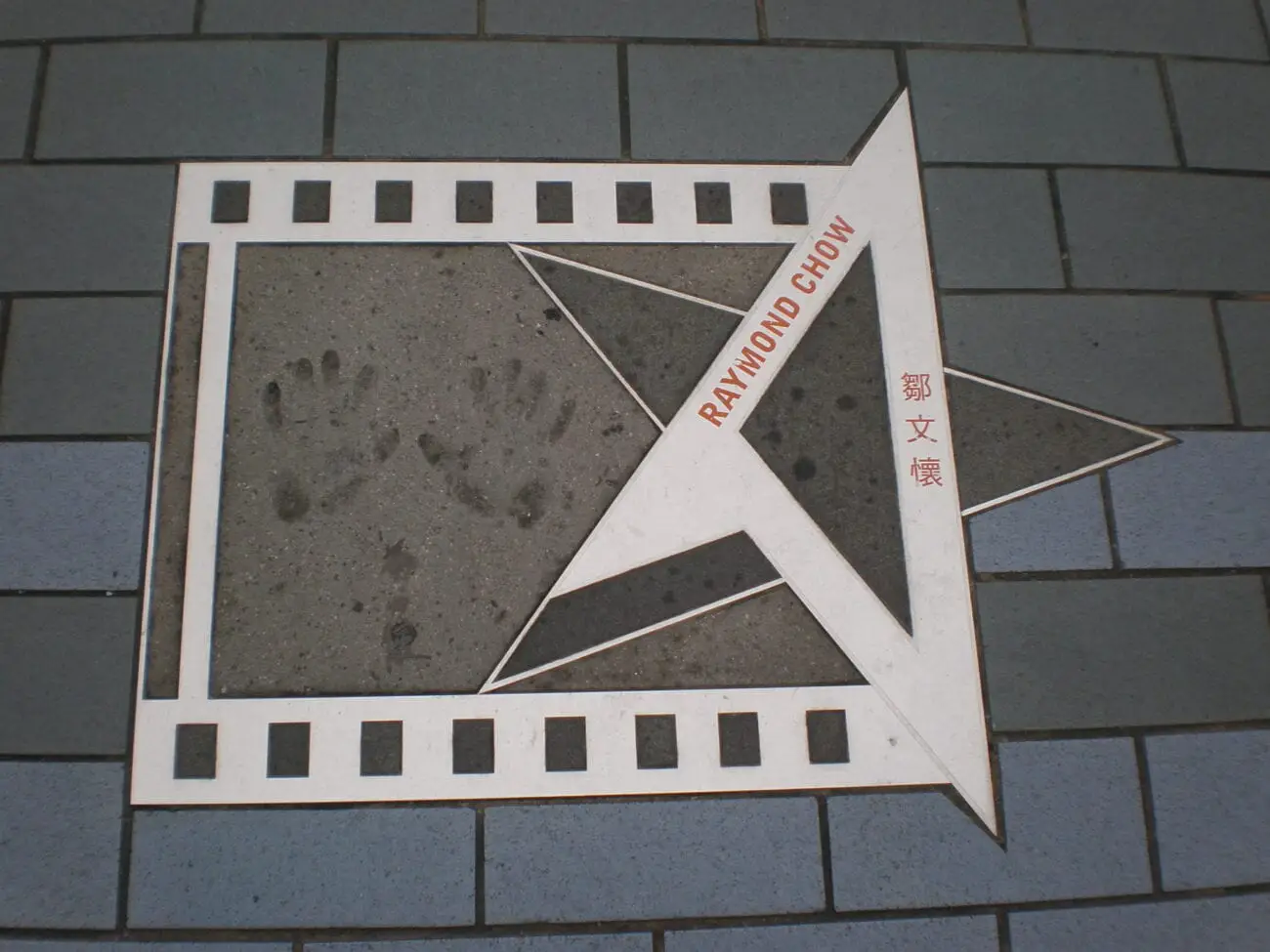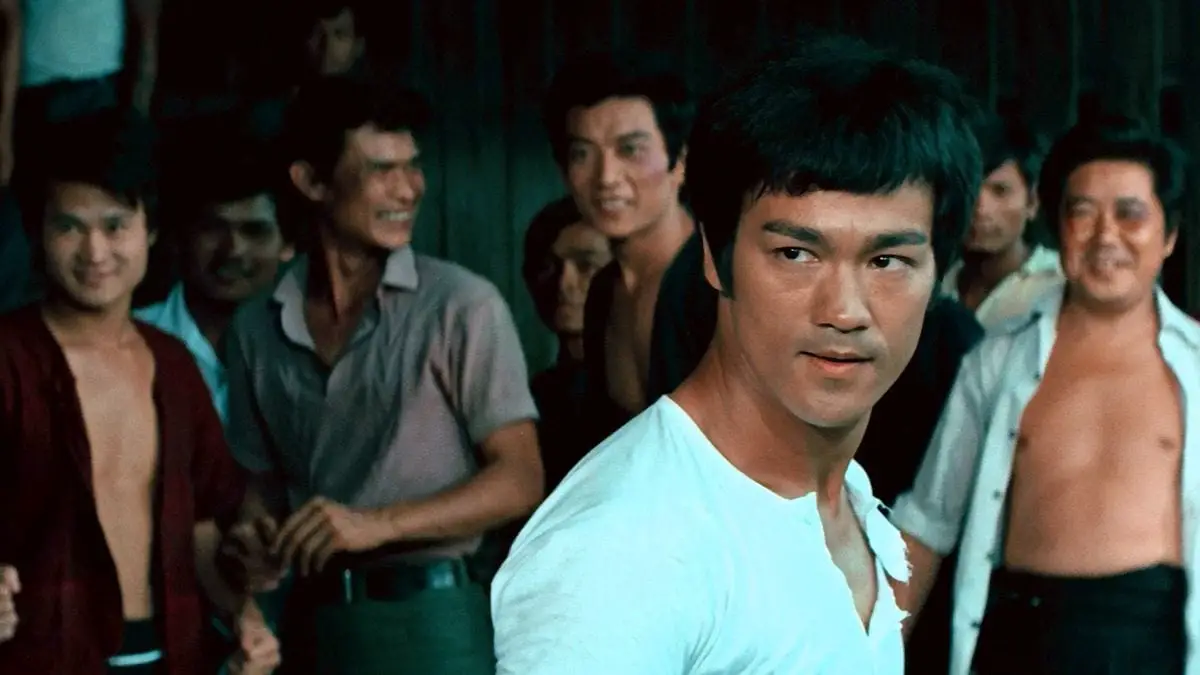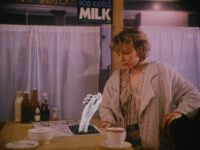In the second part of The History Of Kung Fu, I looked at the massive influence the Shaw Brothers Studios had on the genre. They were the go-to company for all things Martial Arts and it seemed as if no-one would ever be able to take their crown. Yet, they would almost be the architects of their own demise during the 1970s when two of their major players, Raymond Chow and Leonard Ho, decided to go it alone and form the company that would prove their biggest rivals, Golden Harvest.

Raymond Chow was born on Oct. 8th, 1927, in Hong Kong. His future business partner had come into this world two years earlier in 1925 and was born in the same city as Chow. Not a great deal is known about their early lives, outside of the fact that Chow studied Hung Ga martial arts under Master Lam Sai-wing, but what is a fact is that both men went to Saint Johns University in Shanghai to study journalism. It’s probably safe to say that this is where Chow and Ho met and they both graduated with honors in their chosen field. In 1951, Chow joined The Voice of America which, at the time, was nothing more than a propaganda machine for the United States government. It specialized in broadcasting anti-communist programming to countries that were either under the control of such regimes or were deemed to be susceptible to the dreaded Red influence. This has always struck me as a strange career move for Chow, but I put it down to it being more of a case of taking work where he could find it as opposed to any political agenda. He stuck it out for seven years.
In 1958, he was approached about joining the Shaw Brothers Studios as a publicist and jumped at the chance. He also made the recommendation that they hire his friend, Leonard Ho, at the same time, which the company did. Both Chow and Ho took to their new roles with a passion. In fact, they were so good at their jobs that they soon found themselves climbing the corporate ladder with both men taking on the roles of Head of Production and Production Officer respectively. This meant that Chow and Ho were at the helm for some of the best films that the Shaw Brothers Studios were responsible for during this time. The likes of Come Drink With Me, Princess Iron Fan, and The One-Armed Swordsman pretty much set the standard for Martial Arts movies during the ’60s, but no matter how much control the two had over these films, neither was truly happy with the way the company went about putting these masterpieces on the silver screen.
By 1970 they’d had enough. They thought that the budgets were too small and that the shooting schedules were so short that they didn’t have the time to film everything the way they wanted and even though they tried to explain their side to the Shaw Brothers themselves, Run Run and his siblings weren’t for moving. As Raymond Chow explained it during an interview in 1983:
I said I did not think I could keep my job because the pictures were so bad.
He elaborated even further in this 2011 YouTube discussion:
It was hard to publicize a film that I do not believe in. There are only so many lies I can tell. I can’t really exaggerate. Nobody will believe us.
So they quit.

Golden Harvest was founded in 1970 and from the get-go they set out to be everything that the Shaw Brothers Studios weren’t. For a start, they were happy to work with independent producers. This meant that even though they’d retain a vast chunk of rights for whatever project it was they were engaged in, they wouldn’t be the only ones responsible for the production. Where this could be seen as a very difficult working relationship to pull off, it not only worked but allowed the films they made to thrive as it meant that Golden Harvest wasn’t the only side bringing ideas to the table. Allowing others to have a say in what you’re working on is always a gamble, but when it pays off it can make for some incredible magic. For example, one of their first forays into Hong Kong cinema was The Angry River, a great movie I’d recommend quite highly if you can find a copy, which was written, directed, and produced by Huang Feng with Golden Harvest only taking on the role of distributor. It was this kind of new thinking that meant soon those who had run the cameras for the Shaw Brothers Studios started to defect. They weren’t the only ones, however, and it was this next move by Chow and Lo that really put the company on the map.
The Shaw Brothers were notoriously tight with their money. They would sign up and coming talent to very long contracts for a pittance, compared to what they would make the company, and even though it had worked for years and was a great idea at the time, the actors and actresses of the late ’60s and early ’70s were starting to figure out their worth. Sadly, because of this old school Hollywood way of running their business and the fact that they were the only game in town, there wasn’t a great deal the performers could do about it. Until Golden Harvest came along. Chow and Lo landed upon the cutting edge idea that by paying the actors better they’d be more willing to work for them. It also led to the biggest coup in Martial Arts film history when they stole Bruce Lee from under the noses of their big rivals.
I will be taking a much closer look at Bruce Lee in the next part of this series, but it is impossible to talk about Golden Harvest without at least covering the huge part that he played in not only making them legitimate in the eyes of Asian cinema but in the eyes of cinema all over the globe. After The Green Hornet TV series had been canceled, Lee was at a loose end. He was struggling to find any work, even though he was still pitching pilots and movie scripts. On the advice of his friend James Coburn, he decided to try his luck in the Hong Kong market and visited the city. He was stunned by what he found. Lee was a megastar. He was approached by the Shaw Brothers Studio who offered him a long-term contract for the grand total of $2,000 a film. Lee turned it down. Knowing that he had rejected their competition, Golden Harvest swooped in and offered him a $15,000 contract for just two films. Lee gladly accepted and the rest became movie-making history.
The Big Boss would be the debut film for Bruce Lee in 1971. This would be followed by Fist Of Fury and Way Of The Dragon in 1972. It cannot be stated enough, but the significance of these three films, not only on Golden Harvest as a company but on Kung Fu as a genre, was earth-shattering. On its release, The Big Boss raked in $3.2 million HK in less than a month. This broke all box office records at the time, which were previously held by The Sound Of Music, which had made the grand total of $800,000 HK. During its run in Singapore, so many people wanted to see it that a local drive-in was so jammed pack with cars trying to get back in, it created a jam that required the police to be called to sort out. The following year, both Fist Of Fury and Way Of The Dragon would repeat this trick on their release and break box-offices records set by each previous film. Yet, it would take Enter The Dragon to break both Lee and Golden Harvest in America, but when it did there was no looking back for Chow and Lo. Bruce Lee’s involvement with Golden Harvest is, very possibly, the most significant happening in Martial Arts movie history. After all, if it hadn’t happened then they would never have become one of the biggest film companies from the east. This would’ve meant there would’ve been no Jackie Chan, no Sammo Hung, and no Cannonball Run, and no Teenage Mutant Ninja Turtles. But it wasn’t just Bruce Lee that was important to their growth.
Outside of Chan and Hung, they had a wealth of talent at their disposal. Anglea Mao, Biao Yuen, John Woo, all cut their teeth under the Golden Harvest banner and they are just the tip of an incredibly diverse and brilliant roster. The movies they produced over the next 20 years would come to not only bring Hong Kong movies to the fore, as they did with Bruce Lee but would also help change the whole tone of Martial Arts movies when they allowed a certain Jackie Chan to do things his way. It was down to Chow and Ho allowing him total freedom that the world has the likes of Project A, Wheels On Meals, and Police Story and God bless them for it. When the 90s came around, Golden Harvest didn’t slow down. They introduced Louis Fan in Riki-Oh: The Story Of Ricky and a certain Jet Li in Once Upon A Time In China I and II and by the decade’s end Golden Harvest would be established as the go-to company for all your chop-socky needs.
Sadly, Leonard Ho would pass in 1997, and it was his passing that slowed down the output from the company. In 2003 they put out their final film, My Lucky Star, and in 2007 Raymond Chow sold the company and headed off into retirement. He would live to the grand old age of 91, before shuffling off this mortal coil in 2018.
I said in my previous article that The Shaw Brothers Studios were, “Kung Fu movies and no matter how many people may have imitated their style or tried to follow in their footsteps, their 60-year dominance of the industry will never be bettered.”
And I stand by it, but I’ll be damned if Golden Harvest didn’t come close. The fact remains that the Shaw’s changed the business completely and what they achieved within the industry pathed the way for everyone that followed. They were the originators and that is why they deserve the most respect when any discussion on the history of Kung Fu happens. But, having said all that, I prefer the movies that were released under the Golden Harvest umbrella. They were better made, better acted, better directed, and just have an overall feeling of being done for the love of filmmaking as opposed to being a product to increase a bank account. They also brought a genre that was growing tired and stale, kicking and screaming into the 20th century, first via the movies of Bruce Lee and then, after his tragic death, by letting Jackie Chan breathe realism into every element of his films. I cannot stress enough how important Golden Harvest and it’s founders Raymond Chow and Leonard Ho were in bringing Kung Fu to the masses, and to myself on a personal level, so I’ll leave the final words to Edward Yau, Hong Kong’s Secretary for Commerce and Economic Development, who said when Raymond Chow died:
Mr. Chow set up Golden Harvest in the 1970s. The company has since produced a good number of movie classics, helped nurture a pool of Hong Kong talents, and brought them to the international stage. We are most grateful for his great contribution to the development of the Hong Kong film industry.


